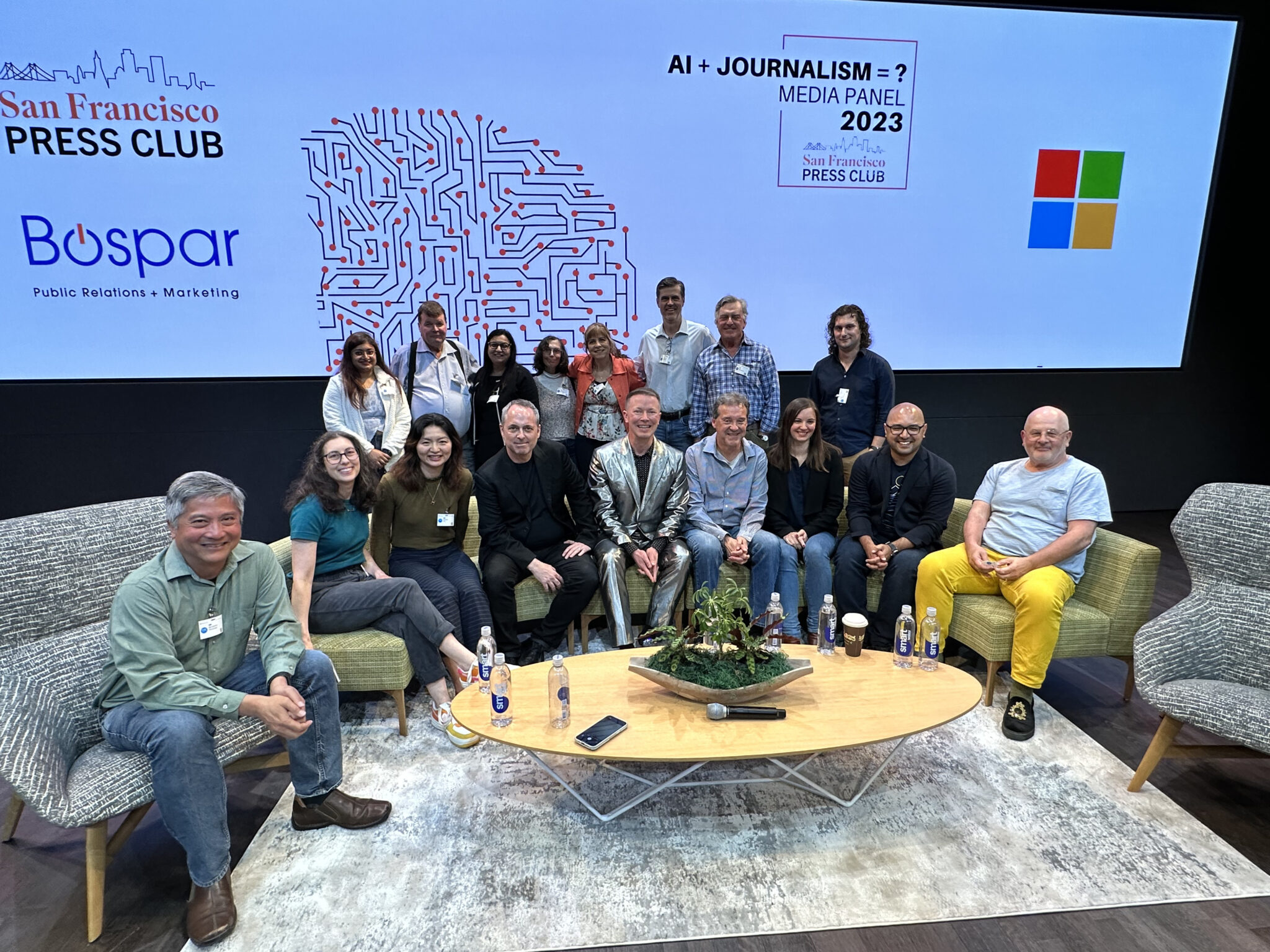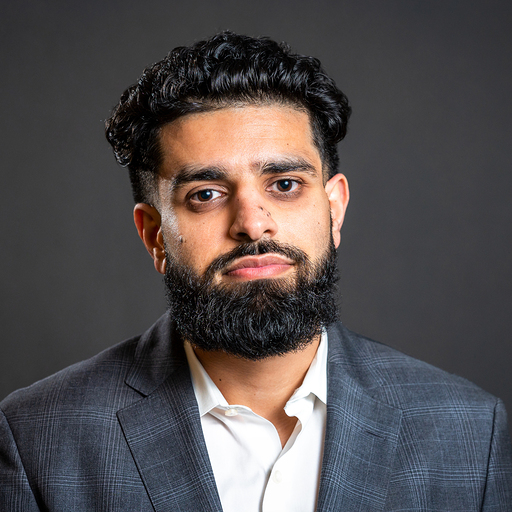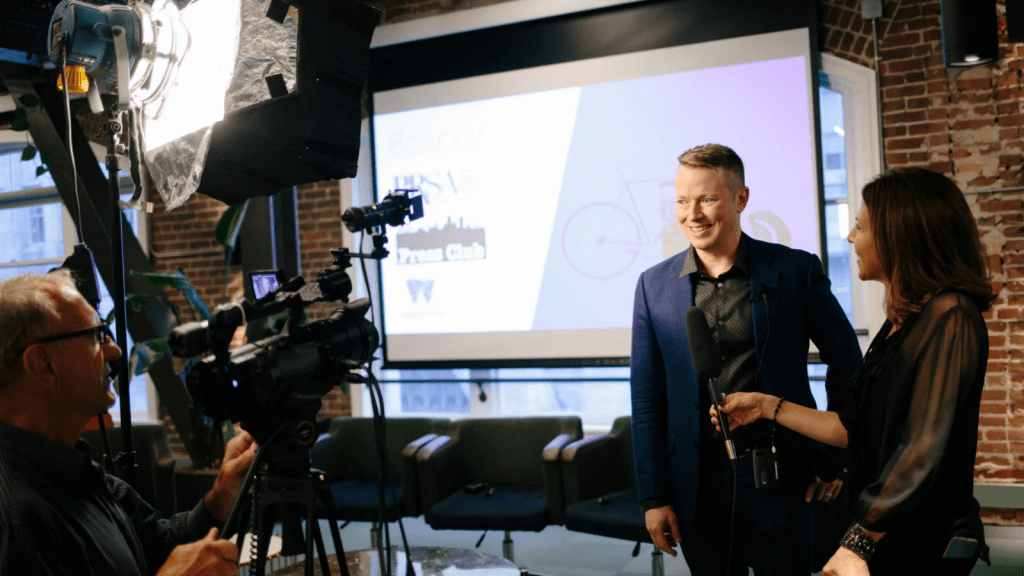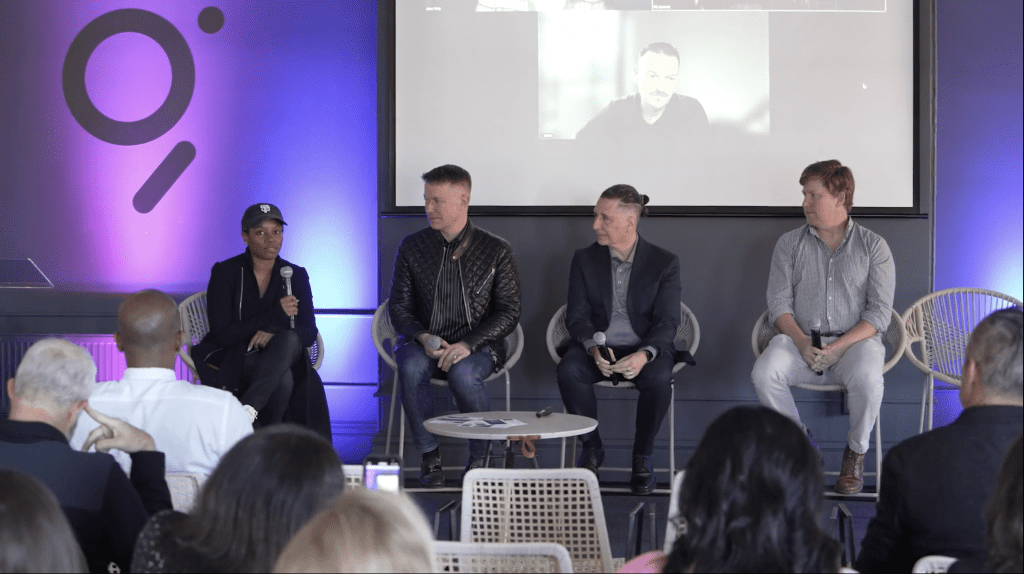Digitalization and artificial intelligence (AI) together have changed the trajectory of many industries. One industry in particular that has seen monumental changes is journalism.
This prompted the San Francisco Press Club to assemble journalists from such notable outlets as VentureBeat, Bloomberg and WIRED for the “AI + Journalism” panel. Curtis Sparrer, principal and co-founder at Bospar, introduced the panel at Microsoft’s campus in Mountain View, Calif.
While there are many pros to AI-based tools – think ChatGPT – there are also serious concerns.
Here are some of the things that leading journalists are saying about and doing with AI.
AI is rolling in like a tsunami
“I see this as a tsunami that is coming and will wash away a large chunk of the U.S. economy. This will be as big as the mobile wave,” said panelist Michael Nunez, editorial director for VentureBeat.
Such sentiment is more than a little jarring. But perhaps it should not come as a surprise, as many people are concerned about the adverse effects of AI, such as whether the technology will push them out of their jobs. According to McKinsey & Company, AI could displace roughly 15% of workers, or 400 million people, worldwide between 2016 and 2030. In a scenario of wide AI adoption, the share of jobs displaced could rise to as much as 30%, the firm found.
And since writing stories is one of the things that generative AI technology is capable of doing, journalists are among the professionals who have voiced concern about potential job loss.
AI is essentially a tool
AI also raises questions about how journalistic integrity will be impacted. And it has people wondering if their news will come from AI bots. The short answer to the latter concern is yes.
But Nunez said VentureBeat readers probably don’t care if AI helps with stories. He believes using AI is like using Photoshop to enhance an image or reposting content on social media.
However, AI has been used to generate fake images such as the Trump arrest photos, which caused a major stir. “When those arrest photos came out, you can look at those and go ‘Ha ha, those are adorable’ for folks who believe they are fairly innocuous,” said Rachel Metz of Bloomberg. But if people believe they are real, fake images can spread more misinformation.
AI can be a good helper
Panelist Boone Ashworth, a staff writer for WIRED, was rather open in his use of AI tools. Instead of using AI to help formulate articles, he said, he uses it for everyday tasks such as figuring out how to put together a meal based on items in his refrigerator. While the recipe didn’t have exact proportions, it did help Ashworth find a more suitable recipe via Google.
Meanwhile, Nunez has been using AI to speed up the editing process when reviewing articles. That has freed him up to pursue other things, such as to write a book and manage a newsletter.
But panelist Julie Jammot, a tech correspondent for AFP –– a notable wire service –– said that her company will not touch AI “with a six-foot pole.”
However, whether you believe that AI is useful or harmful is almost irrelevant at this point.
AI’s impact on media of all forms is sure to be substantial. And that will certainly trickle down to other media-related professions such as public relations and marketing.
So, what we should all be asking ourselves is when and how to embrace this change.




